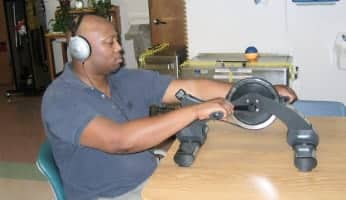Developmental Coordination Disorder

Home - Testimonials - Pediatric Testimonials - Developmental Coordination Disorder

Developmental Coordination Disorder
I am currently working with a little 7 year old boy who has a developmental coordination disorder. When you observe him, you notice things that are subtly different from his same aged peers. His body movements are somewhat awkward and he has a hard time figuring out how to move his body through space. He can’t skip or perform a jumping jack and riding a bicycle is difficult for him. His fine motor skills are also affected and it’s difficult for him to have a steady hand when building with blocks or printing his letters.
When we tested him with the typical round of OT testing, he demonstrated poor coordination, timing and visual motor control. During typical OT sessions, these skills were addressed but his OT thought that Interactive Metronome (IM) could provide an additional boost for him. The IM Long Form Assessment showed that he was in the extremely deficient range for his age for his millisecond timing. This little guy couldn’t even clap to the beat of music let alone clap to the precise beat of the metronome!
We are now half way through our round of IM, and we are slowly but surely seeing improvement. Just today he told me that he had been playing with other children on the playground at lunch! His mother also noticed that during their home program activities that he was becoming energized and more coordinated with the movements he was practicing. His scores in IM are also showing improvement and although they are not in the average range yet, I believe he will get there!
Looking for improvement takes time and a good eye! We not only look at the millisecond scores, but at the quality of the child’s movement or coordination. In this child’s case, I’m looking for symmetrical movements from his right and left side. I’m also looking for his ability to learn to self correct when he gets off of the beat. This has been one of the most difficult areas for him, as it takes him several beats to realize that his timing is too slow or too fast. With lots of coaching and practice improvements can be measured in the millisecond timing scores, which is encouraging to his family. They know that IM is NOT an easy task! If your child is completing IM sessions right now, ask your therapist if you can try just a short exercise so you can feel how mentally and physically challenging the program is! Have patience with these kiddos, as most of them know that they have difficulty and are different from their peers. Be the best encourager you can be for them and cheer them on!






